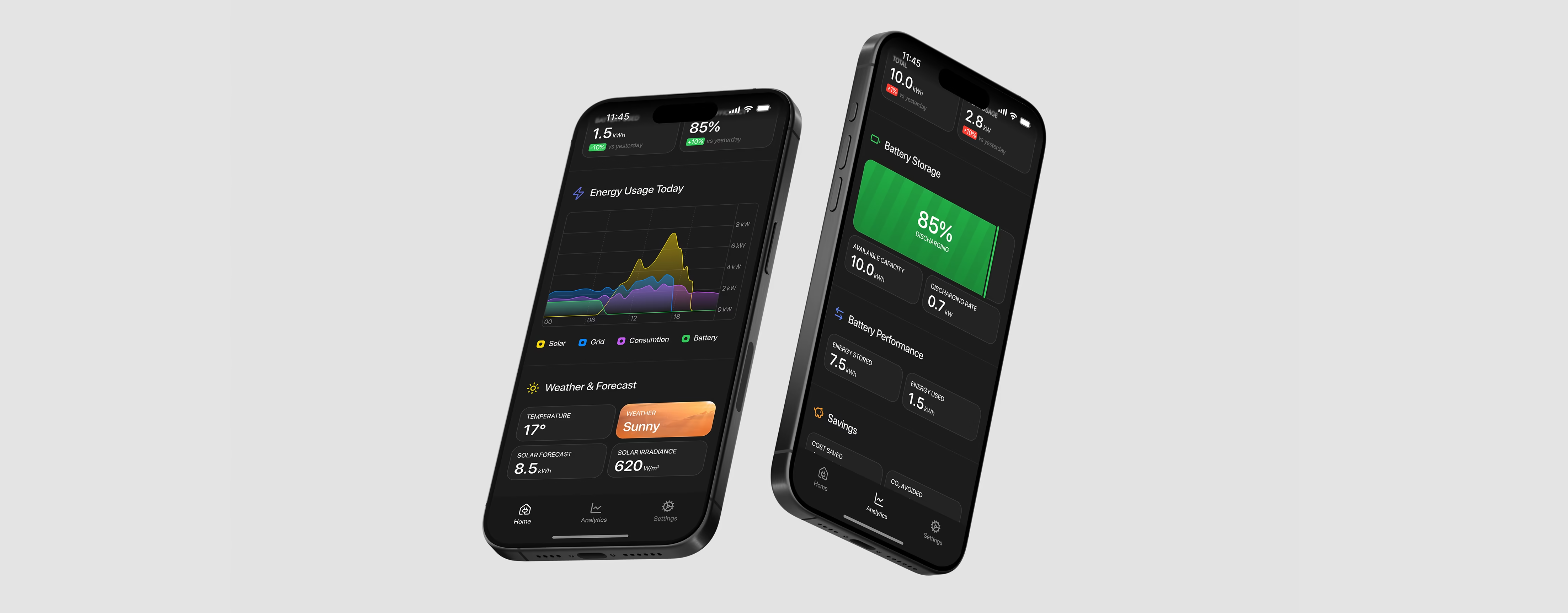StromFlow
Home energy monitoring and management system connected to Home Assistant or a similar smart home platform. The app is designed for homeowners with solar panels and a battery storage system.
Role
Product Designer, UX/UI
Team


Timeline
April 2025 — Now
Methods
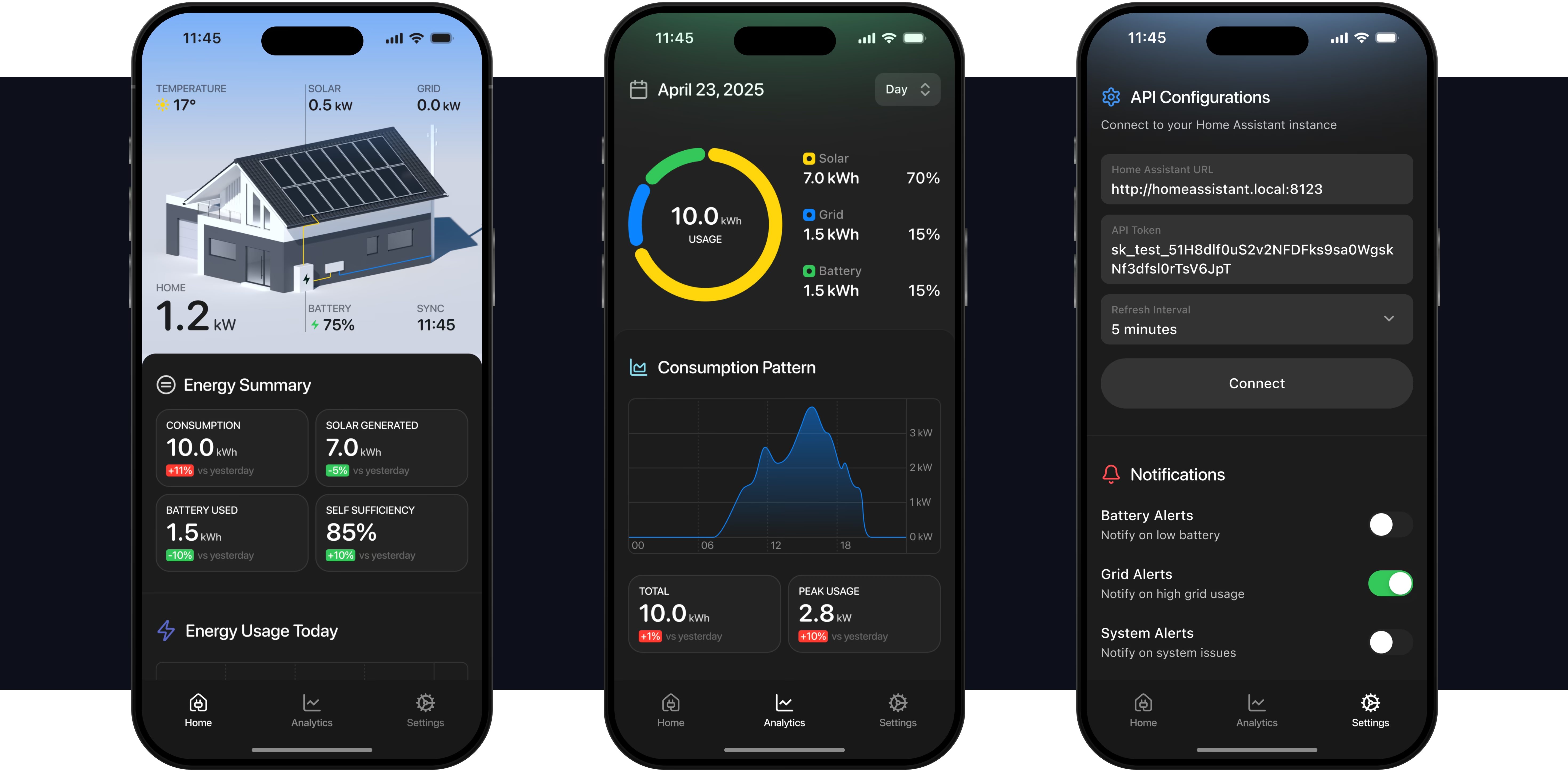
Initial Brief
The idea for StromFlow emerged from the need for a lightweight, widget-first app that helps users monitor and manage home energy usage. Especially those using solar panels and battery storage. Existing solutions like Home Assistant offered robust capabilities but lacked a simple, user-friendly interface that could deliver real-time insights at a glance.
The goal was to design an app that is both functional and elegant. Something that prioritizes performance, visual clarity, and customization.
Market Research
To validate the concept and identify areas of differentiation, I analyzed several existing solutions in the home energy monitoring space, including Tesla App, mySolarEdge, Home Assistant, and Enphase App.
Most of these tools are data-rich but often lack clarity, visual appeal, or ease of use especially when it comes to glanceable insights or customization. For example:
- Tesla App offers a clean interface but is tightly coupled with Tesla hardware and doesn't provide much flexibility for users outside that ecosystem.
- Home Assistant is powerful and highly customizable, but its UI can be overwhelming for non-technical users and lacks mobile-first polish.
- mySolarEdge and Enphase focus primarily on solar production metrics, with limited battery integration or real-time user-centric insights.
The market showed a clear gap: a lightweight, visually engaging app that prioritizes real-time energy feedback, battery integration, and personal usage insights — all while being simple enough for everyday users and flexible enough for enthusiasts.
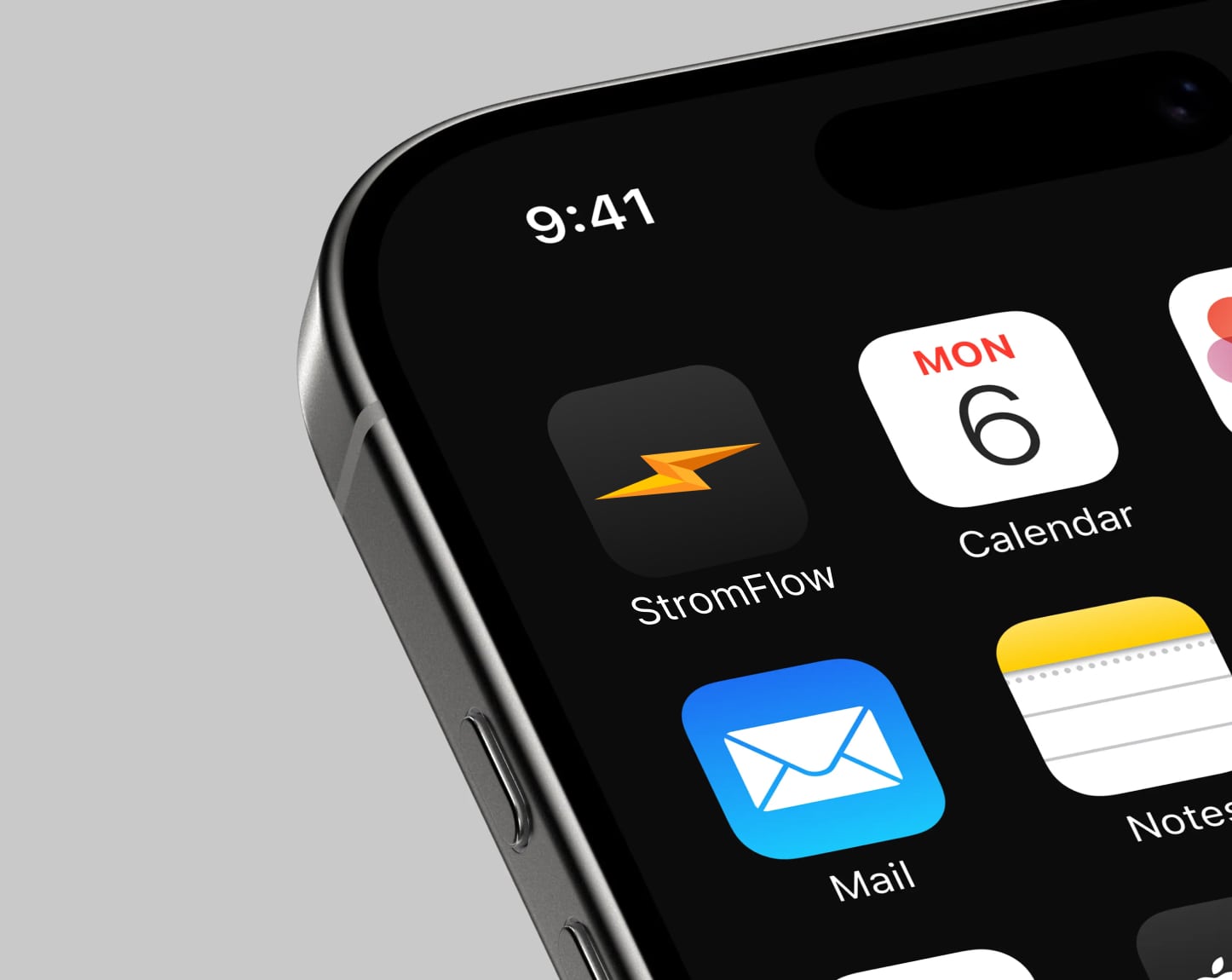
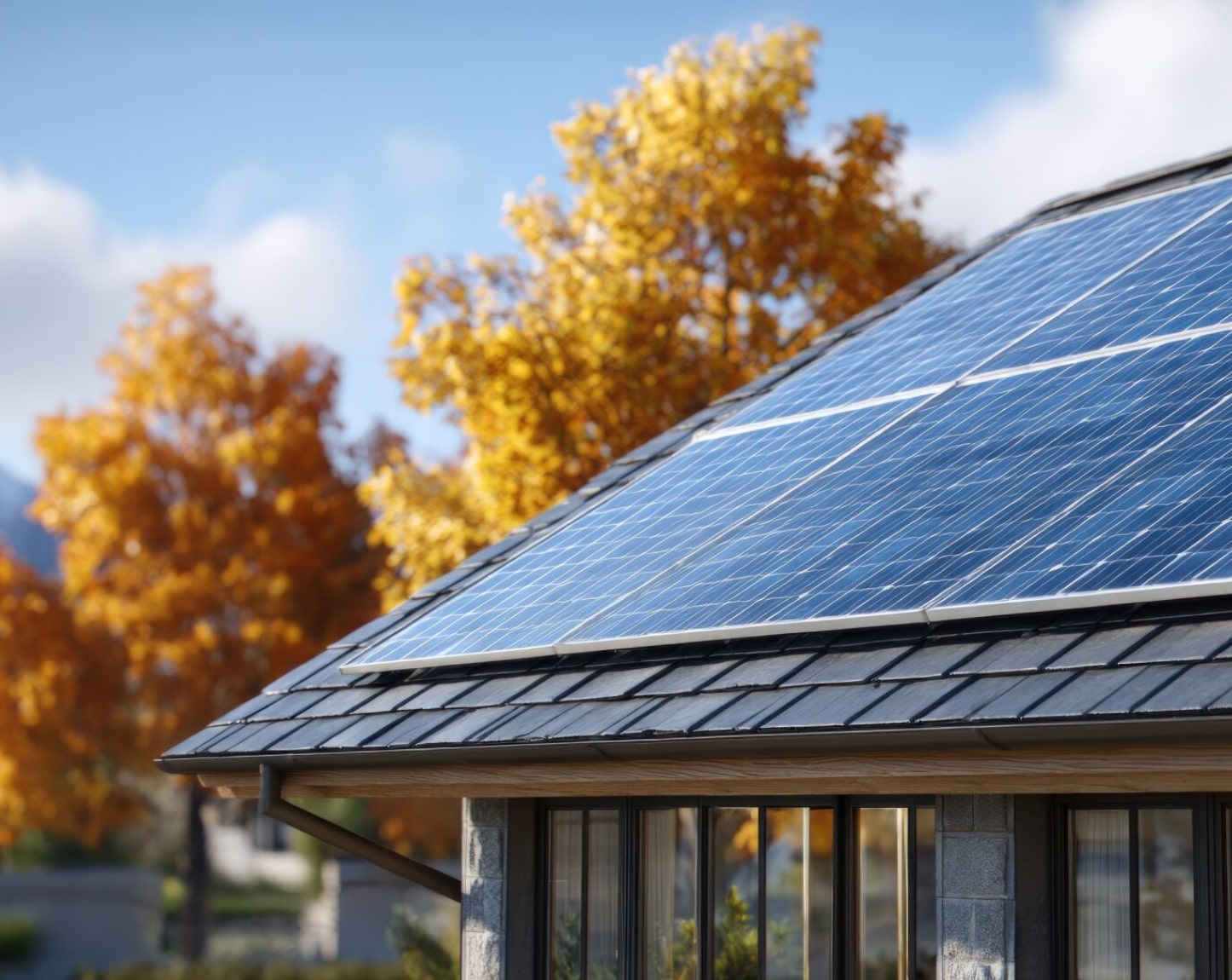
Early Ideation
The ideation phase began with a clear constraint: build a minimal, performant experience that prioritizes a widget-first approach over a full-featured app. The primary objective was to visualize home energy usage:
- Current
- Historical
- Forecasted (as an idea)
In a way, that feels alive, contextual, and user-centric.
Wireframes
This was an important step in the context of the client’s basic requirements. I needed to ensure that our visions were aligned and that all aspects beyond the core functionality were covered and approved.
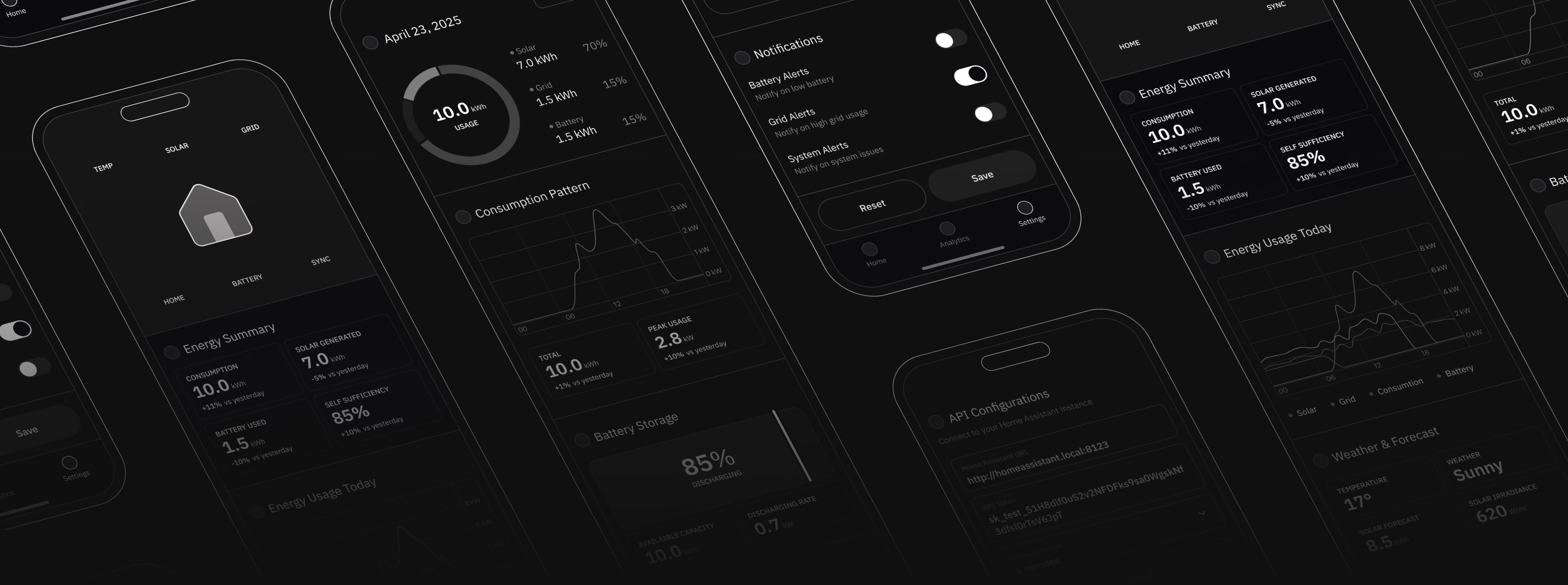
High Fidelity
I took a tactical approach here. The combination of an open brief and a small number of pages gave me a certain degree of creative freedom. This allowed me to reallocate resources toward exploring more interesting concepts, such as a 3D-modeled house designed to showcase dynamic weather conditions.
Proven Technologies & Tools
During this project I had unique opportunity to bring vision to life with help of various tools like Blender and Rive. Also I used AI tools like ChatGTP, Lovable and Bolt.
